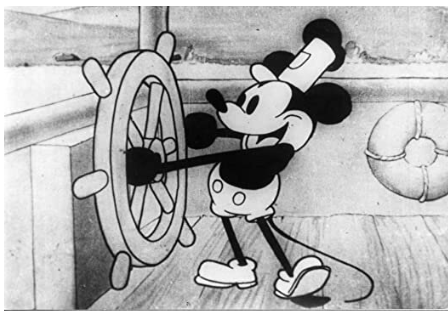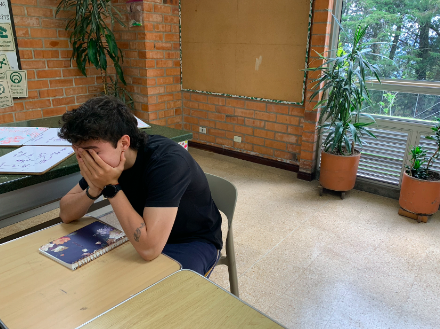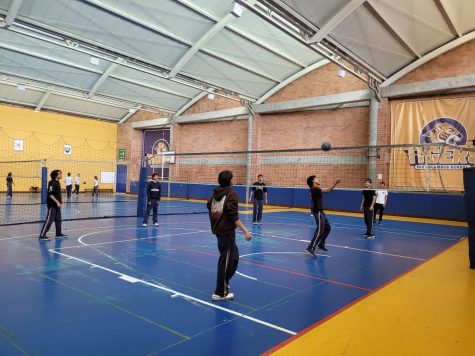IB: A Step Towards the Future

“It is Thursday morning, May 9, and you will be taking the AP Chemistry Exam.” As the proctor finishes these distant words, student anxiety is at its peak and panic is palpable. At the Columbus School, AP exams represent the culmination of a year-long advanced course whose primary goal is a grueling exam. Throughout the year, students cram content and receive countless lessons on “vital” test-taking skills, yet after the proctor pronounces the dreaded phrase, “stop working and close your exam booklet,” the only lesson all students vividly remember is the one on deciphering College Board language. To minimize the emphasis of test-taking as an essential skill, the International Baccalaureate (IB) curriculum was created with the mission of encouraging individuals to “challenge assumptions and think critically.” Therefore, as TCS creates its new strategic plan, it should employ the innovative IB curriculum, helping it remain a vanguard in the international educational community.
Each school and course at TCS works as an independent unit, which does not allow students to develop connections between divergent subject areas. The IB provides a concrete solution to this problem by having “[Four] programmes [which] encourage both personal and academic achievement.” Each of these programs would cover a TCS subdivision and increase homogeneity between them. Furthermore, the IB curriculum recognizes the world is interconnected and students need to be internationally-minded. Therefore, teachers inside this program tend to collaborate across multiple disciplines, increasing the application of each course and challenging students to have concepts transcend classroom walls. The idea of collaborative teaching is one TCS wants to embrace by changing the school’s infrastructure and providing spaces for teachers to collaborate; however, this will not be possible if the curriculum does not allow it. Due to the goal of the AP being passing an exam full of superficial information, course standards tend to be rigid and do not provide time for deviations. As a result, unless the school adopts a curriculum whose core is collaboration, changes to infrastructure and scheduling will not be effective.
The idea of having well-rounded students is one that TCS directives have pitched for years; however, current curricular practices neither encourage nor allow people to embody this mentality. If the school became IB, students will have three required components: theory of knowledge (TOK), extended essay, and creativity, activity, service (CAS), whose essence is developing the full of extent of the individual. As a part of this program, people are asked to “reflect on the nature of knowledge, and on how we know what we claim to know” as a part of their TOK essay, develop a research question which culminates in a 4,000-word extended essay, and participate in a range of experiences and the development of one project surrounding CAS. Ultimately, all of these requirements allow students to comprehend the importance behind integral development and foster a passion for life-long learning. On the other hand, the current AP program regurgitates information without purpose and neglects non-traditional fields. There is no love of learning and the rationale behind obtaining knowledge is never explored. School is about developing skills to thrive in the world, yet the current curriculum focuses on quantity of facts versus cultivating a sense of purpose. If TCS wants to become an elite school, it will cease to instill a mentality of test-taking and foster one of integral development.
One of the most common comments from all parties involved at TCS is the lack of academic rigor and student engagement. Through the flexibility the IB program provides, teachers can deep-dive on specific skills they want to develop with their students versus the AP strategy of covering tons of material superficially in nine months, resulting in increased student engagement. Furthermore, rigor will improve because students are forced to take advanced classes in a variety of subjects instead of having the option to focus on their strengths with the AP. According to former IB teacher and coordinator Jordi Tur, “everybody has to step forward. This is IB, this already has a rigor.” Although this will be challenging, colleges deem the IB diploma as more impressive than the AP because of its breadth of courses and previously mentioned essay and service-learning requirements. For instance, “The acceptance rate of IB students into Ivy League institutions is between 3% and 13% higher compared to the total population acceptance rate.” At the end of the day, if colleges have two identical candidates whose only difference is one has the IB diploma and the other took AP courses, the one with the first will have the advantage. According to Harvard Director of Admissions Marilyn McGrath, “Success in an IB programme correlates well with success at Harvard.” Additionally, Tur explains how for him “the AP was like the preparation for the IB” because it did not allow students to gain depth of knowledge. Ultimately, the IB allows teachers and students to explore their interests in more depth and breadth and culminates in more demanding products than a simple exam.
Overall, the core of the ingenious IB program channels the new purpose TCS has created and presents a superlative solution to various dilemmas the institution has. According to Tur, “The school is totally prepared to do it. It’s just changing and convincing parents.”

























